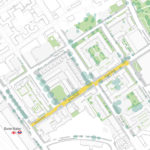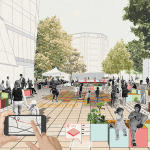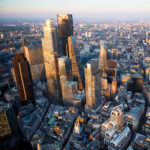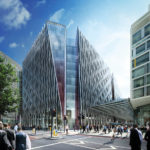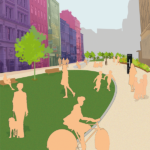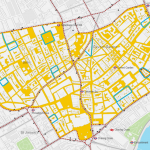Transport seems to be getting the appreciation it deserves for the role it plays as the backbone to the national economy. The humble giant, that has so often been overlooked and unappreciated, the world now looks to for answers.
Seldom have so many people actively questioned just how they are going to travel to work safely, or how they are going to get access to the goods and services that they need.
“What?! I have to wait two weeks to get my online order delivered?! Pffft” has probably been a common reaction for most of us in the UK in recent weeks as the gravitas of the current situation really hit home. The supply chains were the first to be impacted as the toilet roll hoarding shenanigans began, but now the game has changed – people are back in work and we must get them there safely.
Those of us that work within transport could perhaps already appreciate just how complex transport can be, notwithstanding the crucial role it plays in supporting society and mobility.
Ordinarily, questions on how one would travel might be rather trivial. However, during lockdown, people have begun to take note of the transport options available to them, perhaps truly considering their situation for the first time since starting that new job or moving house. People have been forced to engage with their travel habits and to find alternatives. They’re discovering that they can undertake those ‘every day’ short trips. Maybe, just maybe, they are even discovering that they enjoy it. Herein lies the opportunity.
Upon the commencement of lockdown some were suggesting that people would incur a ‘Eureka’ sort of moment – we would realise just how awful the private car made everything from noise pollution to air pollution and that we’d re-engage with the natural world around us. Here we apparently sat on the precipice of a mobility revolution.
Is it naive to expect people to appreciate and remember the cleaner air, the returning wildlife and the new-found sense of life? Is it optimistic (at best) to hope that eight weeks of lockdown reflection could in any way counterbalance 70 years of planning around the automobile? The return of millions back to work has already seen the car make a return – and dashed some hopes that people have experienced an active travel epiphany of any kind.
Out for my walk today, the eight weeks of relative peace and tranquillity seem but a distant memory. The new-fangled, peaceful 200-yard breeze to the local common has quickly returned to 200 yards of noise, pollution and unnerving activity. This is despite many millions more continuing to work from home. This just so highlights the fact that intervention is needed.
Our societal addiction to the car will not be solved by the free market, or through us praying for a Eureka moment on behalf of the public. We must all be led and we must ask ourselves, where do we want to go and how are we going to get there?
Where do we want to go?
Three components of an effective transport system could be summarised as follows.
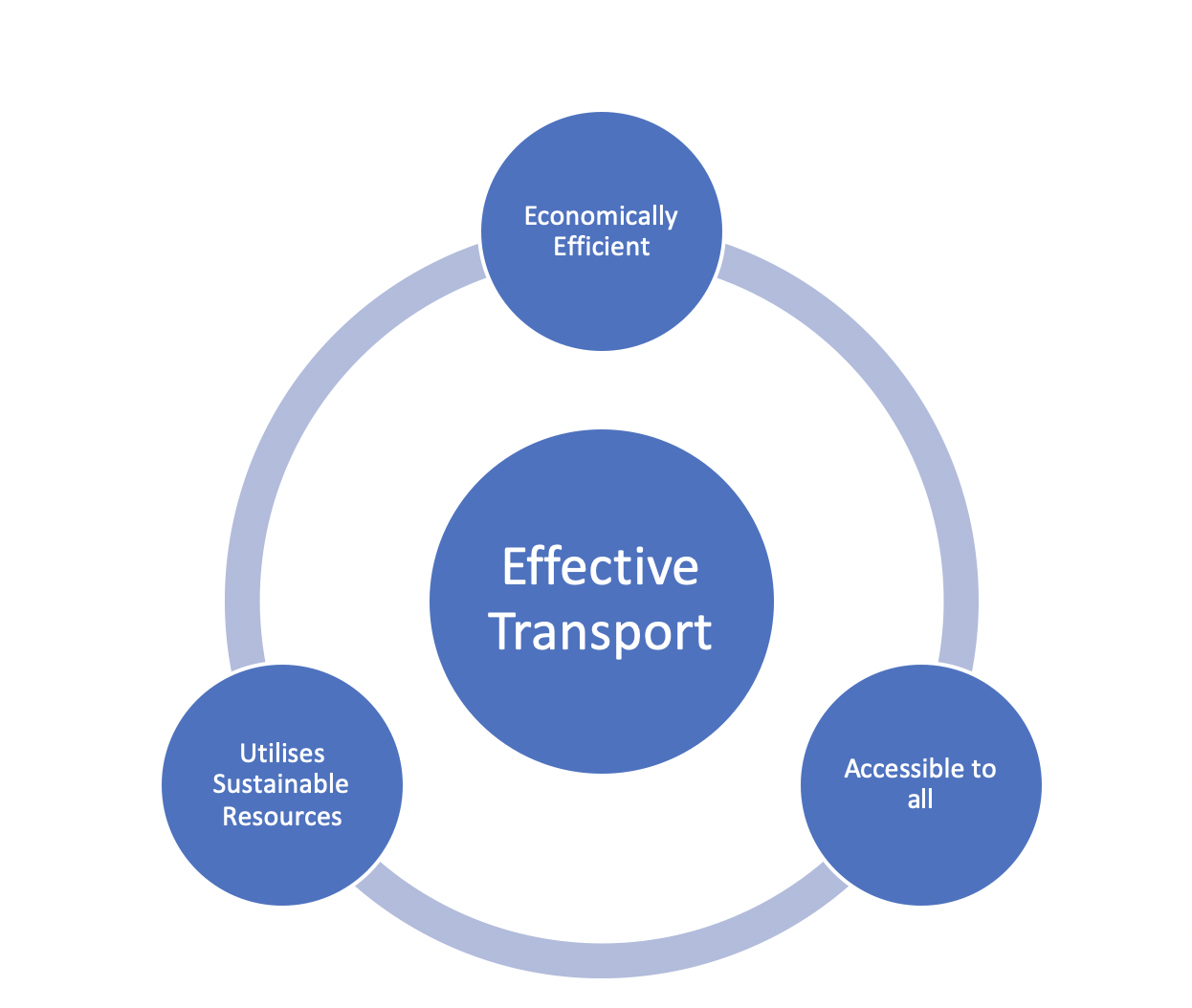
It would be fair to say that the current transport system in the UK is unsustainable, economically inefficient and grotesquely unequal. It should not be forgotten that transport is now the most polluting sector within the UK with few signs of improvement seen to date. However, the poor state of the UK’s transport system has now been recognised and longer-term efforts are in motion that aim to rectify this, such as a new focus on the ‘micro’ aspect of mobility (as covered in one of Momentum’s recent thought pieces[1]).
It’s essential now more than ever that as a society we are open-minded and that we challenge the status quo; that we engage with new ideas and technologies; and that we strive to remain internationally competitive. But we cannot let this pursuit erroneously lead us down the wrong path, quite like the car has done for the last few decades.
Keep It Simple, Stupid! (KISS) was an acronym used during my time at university to describe a suggested approach to the complex topic area of Agent-Based Modelling. The idea was to keep something inherently complex as simple as possible. For me, there is a deep resonance with transport and the issues we face today. Complex solutions are commonly touted as the next magic ‘fix’ for many of our challenges but it really doesn’t need to be that complex and we cannot rely upon technology that quite simply isn’t ready.
What we can do today, however, is utilise technology that is ready. And which has been ready since 1817 – the bicycle. This appears to be an approach that TfL is opting for. The initial proposed measures are extremely encouraging and should be supported (a summary of the proposed measures can be found here[2]). Cycling is a clear focus as part of the UK’s post-Covid recovery. It would also appear that TfL is hoping to secure a permanent reduction in car use (in a similar fashion to the reduction that was observed in 2008 following the financial crisis) and to catalyse a cycling revolution within central London and the City in particular. This will initially be delivered as ‘temporary’ and will be in response to the new challenges of Corona and the two-metre policy, but I hope these changes are here to stay.
Time will tell but I think the ball has begun to roll and will continue to roll us into a cycling revolution, similar to what Amsterdam experienced in the 1970s[1] (yes, they too once permitted cars to dominate their great city). Developers, operators and local authorities must attempt to anticipate what the world will look like in the future and then provide for accordingly.
How attractive will an office block be without sufficient cycle parking? What advantage will some buildings possess over others in a world where the bicycle dominates like in Amsterdam? How will we retrofit the thousands of existing properties that simply aren’t prepared? These are the questions we’re helping our clients answer today.
Let us lead this vision together.
[1] https://www.momentum-transport.com/the-future-of-travel-shock-or-shift/
